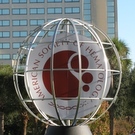Articles tagged with: SLAMF7 Targeted Therapies
News, Opinion»

Each year at the Annual Meeting of the American Society of Hematology we hear about dozens of new drugs that are able to annihilate multiple myeloma cells in the test tube and in animal models. Unfortunately, at the same meeting, we also sit through presentations and walk by posters of drugs that looked hot in the laboratory but then fail to work when given to real patients with myeloma.
This is not new. It has been the story with myeloma for ages. The myeloma cells are smart and are seemingly able to …
News»

Dr. Kenneth Anderson, a world-renowned myeloma specialist, physician and researcher at Dana-Farber Cancer Institute, and Kraft Family Professor at Harvard Medical School, spoke with The Myeloma Beacon about his approach to treating multiple myeloma patients.
This article is the second part of a two-part series based on The Myeloma Beacon’s interview with Dr. Anderson. It will cover Dr. Anderson’s thoughts on where myeloma treatment is headed in the coming years. For more information on Dr. Anderson’s current approach to treating multiple myeloma, please see part one of this series.
Emerging Therapies …
News»

The results of three ongoing clinical trials suggest that elotuzumab in combination with either Velcade (bortezomib) or Revlimid (lenalidomide) plus low-dose dexamethasone (Decadron) is effective and well-tolerated in patients who have relapsed or have treatment-resistant multiple myeloma.
The findings were presented at the American Society of Hematology (ASH) annual meeting in Orlando last week.
Elotuzumab is a new drug being developed by Facet Biotech and Bristol-Myers Squibb as a potential treatment for multiple myeloma. It recognizes and binds to unique proteins on the surface …
News»

Tuesday was the last day of the American Society of Hematology annual meeting in Orlando. The myeloma portion of the conference concluded with one session of talks in the morning about treatments under development.
The first talk was given by Dr. David Siegel of Hackensack University Medical Center in New Jersey. Dr. Siegel presented results from a study of single-agent carfilzomib in myeloma patients who had relapsed multiple times and did not respond to their last treatment (abstract).
Among the 257 evaluable participants, 24 percent achieved at least a partial …
News»

The American Society of Hematology meeting swung into full gear yesterday. The day was full of invited talks and a poster session.
The morning kicked off with an education session in which attendees could learn about several myeloma-related topics.
The first presentation was by Dr. Ola Landgren from the National Cancer Institute and National Institutes of Health in Bethesda, Maryland. Dr. Landgren spoke about monoclonal gammopathy of undetermined significance (MGUS) and smoldering myeloma, precursor diseases of multiple myeloma.
A study published by Dr. Landgren last year showed that all multiple myeloma patients have …
News»

Preliminary results from two ongoing clinical trials suggest that elotuzumab in combination with either Velcade (bortezomib) or Revlimid (lenalidomide) plus low-dose dexamethasone (Decadron) is effective and well-tolerated in patients who have relapsed or are resistant (refractory) to previous myeloma treatment. The findings were presented at the American Society of Clinical Oncology (ASCO) annual meeting in Chicago.
Elotuzumab is a new drug being developed by Facet Biotech and Bristol-Myers Squibb as a potential treatment for multiple myeloma. It selectively targets proteins that are on the surface of …
News»

The third day of the American Society of Clinical Oncology (ASCO) 2010 annual meeting in Chicago was tailor-made for morning people interested in multiple myeloma. The key myeloma-related activity on Sunday, June 6 was a morning abstract session starting at 9:30 a.m. Nine abstracts were presented and discussed over the course of three hours.
The first two presentations dealt with Velcade (bortezomib)-related research.
Dr. Antonio Palumbo of the University of Turin presented the results of the first study. It compared two regimens for the treatment of newly diagnosed elderly myeloma patients. The first regimen involved …

